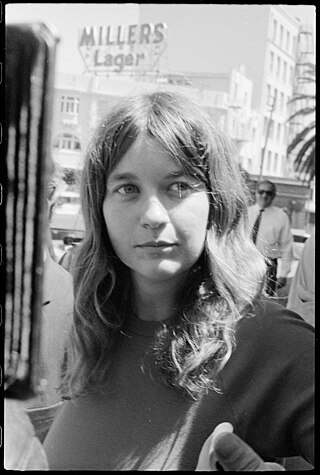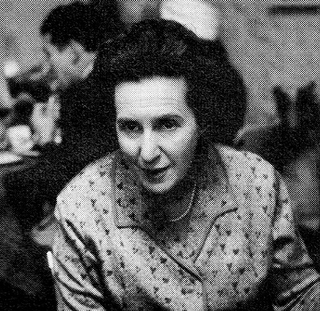Related Research Articles
The annual Walkley Awards are presented in Australia to recognise and reward excellence in journalism. They cover all media including print, television, documentary, radio, photographic and online media. The Gold Walkley is the highest prize and is chosen from all category winners. In 2023, Not all awards were open to male journalists. The awards are under the administration of the Walkley Foundation for Journalism.
The Gold Walkley is the major award of the Walkley Awards for Australian journalism. It is chosen by the Walkley Advisory Board from the winners of all the other categories. It has been awarded annually since 1978.
Chip Le Grand is an Australian journalist who lives in Melbourne. He worked for 25 years for The Australian newspaper, writing about national affairs, sport, politics and crime. In August 2019, he joined The Age newspaper as its chief reporter.
Caroline Overington is an Australian journalist and author. Overington has written 13 books. She has twice won the Walkley Award for investigative journalism, as well as winning the Sir Keith Murdoch prize for journalism (2007), the Blake Dawson Waldron Prize (2008) and the Davitt Award for Crime Writing (2015).
Griffith Review is a quarterly publication featuring essays, reportage, memoir, fiction, poetry and artwork from established and emerging writers and artists. The publication was founded in 2003 by Griffith University in Australia, and was initially published by ABC Books. In 2009, Text Publishing became the Review's publishing partner and distributor. Therefore, the magazine has bases in both Brisbane and Melbourne. Julianne Schultz was the founding editor and has been publisher since 2018, when Ashley Hay was appointed editor.
George Megalogenis is an Australian journalist, political commentator and author.
Ceridwen Dovey is a South African and Australian social anthropologist and author. In 2009 she was named a 5 under 35 nominee by the National Book Foundation and in 2020 won The Bragg UNSW Press Prize for Science Writing.

Melissa Lucashenko is an Indigenous Australian writer of adult literary fiction and literary non-fiction, who has also written novels for teenagers.

Professor Wendy Bacon is an Australian academic, investigative journalist, and political activist who was head of the Journalism Program at the University of Technology, Sydney. She was awarded Australian journalism's highest prize, a Walkley Award in 1984 for her articles about police corruption in New South Wales.
The Global Mail was a not-for-profit multimedia site for longform and project-based journalism in the public interest operating from 2012 to 2014. Based in Sydney, Australia, the site launched in February 2012 with philanthropic funding from internet entrepreneur Graeme Wood, who committed funding for five years.

Hedley Thomas is an Australian investigative journalist and author, who has won seven Walkley Awards, two of which are Gold Walkleys.
The Bragg UNSW Press Prize for Science Writing was established in 2012 to recognise excellence in Australian science writing. The annual prize of A$7,000 is awarded to the best short non-fiction piece of science fiction with the aim of a general audience. Two runners up are awarded $1,500 each.

Margot O'Neill is an Australian journalist, writer and producer. She founded Original Thinking Productions, a multi-platform content provider after leaving the ABC in 2019 where she was a journalist for over 25 years. O’Neill worked as a journalist for nearly 40 years in television, radio, newspapers and online in Australia and overseas covering politics, national security and social justice issues and has worked on a variety of ABC programs including the investigative flagship program, Four Corners. O'Neill twice won Australia's Walkley Awards including for Best Investigative Reporting as well as four human rights awards. She also wrote a book called Blind Conscience telling the stories of some of the key players in Australia's refugee advocacy movement. It won the 2009 Human Rights award for best non-fiction. She has a Bachelor of Arts (Politics) degree from Melbourne University. She was a Journalist Fellow at the University of Oxford.
Jess Hill is an Australian investigative journalist. In 2020, she won the Stella Prize for her non-fiction work See What You Made Me Do: Power, Control and Domestic Abuse.
Erik Jensen is an Australian journalist and author, known for his 2014 biography of artist Adam Cullen, Acute Misfortune: The Life and Death of Adam Cullen, and as founding editor of The Saturday Paper.
Gay Alcorn is an Australian journalist and newspaper editor. She was appointed editor of The Age in September 2020 and stepped down in December 2022. Her sister, Margo Kingston, is also a journalist.
Louise Milligan is an Australian author and investigative reporter for the ABC TV Four Corners program. As of March 2021, she is the author of two award-winning non-fiction books. Her first novel, Pheasants Nest, was published in 2024.

Ashley Hay is an Australian writer. She has won awards for both her nonfiction science writing and her novels. As of March 2022 she is editor of the Griffith Review.

Pamela Ruskin was an Australian freelance journalist with a special interest in the arts.
References
- ↑ "Storyology:After Dark 'More Info'". Brisbane Power House Arts. Archived from the original on 30 May 2018. Retrieved 23 February 2018.
- ↑ "The best Australian science writing". ABC. Retrieved 16 February 2018.
- 1 2 "Jo Chandler". The Conversation. Retrieved 16 February 2018.
- ↑ Briggs, Chantelle (24 August 2017). "The Walkley Magazine :Be clear why you're in this". medium. Retrieved 23 February 2018.
- 1 2 3 4 "Get To Know Jo Chandler, Senior writer, The Age, Melbourne". One just World. Retrieved 23 February 2018.
- ↑ "Jo Chandler". wheelercentre. Retrieved 25 February 2018.
- 1 2 "Jo Chandler". Penguin Books Australia. Retrieved 23 February 2018.
- ↑ Chandler, Jo. "ABOUT". notebook&narrative by Jo Chandler. Retrieved 23 February 2018.
- 1 2 "MUP Jo Chandler". Melbourne University Publishing. Retrieved 23 February 2018.
- 1 2 "Jo Chandler Freelance journalist". 10th World Conference of Science Journalists San Francisco 2017. Retrieved 25 February 2018.
- ↑ "Freelance journalist Jo Chandler wins George Munster Prize". Newsroom. 14 March 2014. Retrieved 26 February 2018.
- ↑ "Australian Antarctic Magazine-Issue 18: 2010 'Frozen in time'". Australian Government Department of the Environment and Energy Australian Antarctic Division. Retrieved 27 February 2018.
- ↑ "2009 Walkley Award winners". The Sydney Morning Herald. 26 November 2009. Retrieved 27 February 2018.
- ↑ "2010 Best Print-Feature:Winner Jo Chandler,The Age, Heart of The Battle" (PDF). UNAA Media Peace Awards WINNER's and FINALISTS. Retrieved 27 February 2018.
- ↑ Chandler, Jo. "Awards: Recognition & Opportunities". notebook&narrative by Jo Chandler. Retrieved 28 February 2018.
- ↑ "2013 Quill award winners: 'Best Feature in Writing ' : Jo Chandler The Global Mail". Melbourne Press Club. Retrieved 27 February 2018.
- ↑ "Winners of the George Munster Award" (PDF). University of Technology Sydney Australian Centre for Independent Journalism. 21 March 2014. Retrieved 27 February 2018.
- ↑ "Jo Chandler recognized for influential writing on PNG". Keith Jackson & Friends: PNG Attitude. 3 November 2013. Retrieved 27 February 2018.
- ↑ "Bragg UNSW Press Prize for Science Writing". UNSW Sydney Science. Retrieved 27 February 2018.
- ↑ "Freelance Journalist of the Year". The Walkley Foundation. Retrieved 27 February 2018.
- ↑ Stock, Petra (23 August 2023). "Frogs, birds, climate and AI research feature among 2023 Eureka Prizes". COSMOS. Retrieved 23 August 2023.